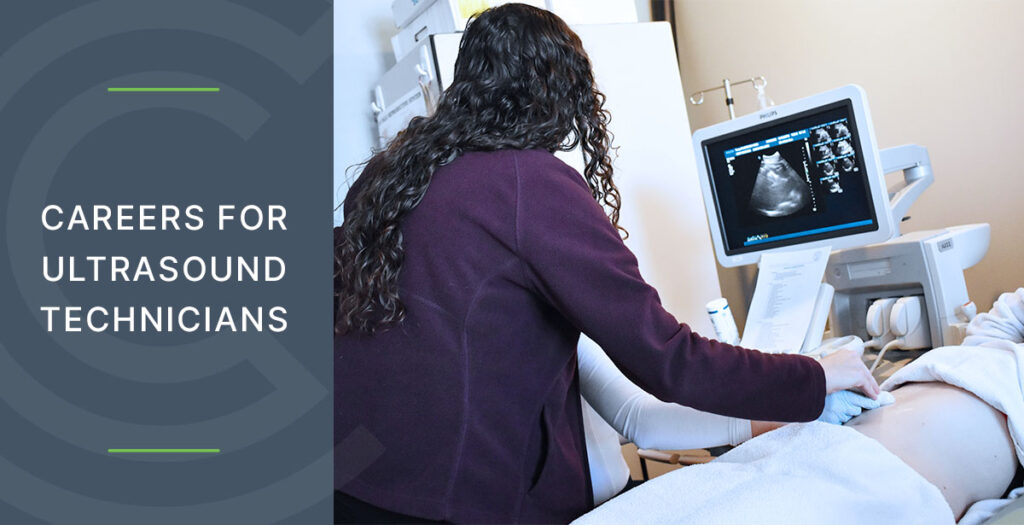
Ultrasound Technician Careers to Consider
If you love the idea of helping people and are considering a career in the healthcare industry, it might be a great time to explore the world of ultrasound technology. Why? Because of all the healthcare careers to choose from, working as an Ultrasound Technologist, commonly referred to as Sonographer, is definitely a career path that is on the rise. In fact, according to the Bureau of Labor Statistics, the industry is predicted to add almost 15,000 new jobs by 2031. Throw in an average annual salary of more than $75K a year and what’s not to love? But what kind of careers can you actually pursue as an ultrasound technician? Let’s start by exploring a few things you should know, starting with – what does an ultrasound technician actually do?
What does an ultrasound technologist do?
Sonographers, or ultrasound technicians, are trained to use imaging equipment that creates high-frequency sound waves that scan and record images in the human body to help doctors and other healthcare professionals diagnose or monitor the medical condition of patients. There are different specialties within ultrasound technology including but not limited to:
- OB/GYN which focuses on pelvic organs and fetuses
- Abdomen and small parts imaging primarily the abdominal organs and other smaller organs
- Cardiac imaging of the heart’s walls, valves, blood vessels, and chambers to diagnose a variety of heart conditions
- Vascular which focuses on veins and arteries in arms, legs, and the neck
An ordinary day as an ultrasound technician can include duties such as:
- Communicating with patients and recording medical history
- Preparing ultrasound rooms and maintaining equipment for procedures
- Performing ultrasound diagnostic imaging to obtain images of various parts of the body
- Reviewing images and noting abnormalities
- Recording your findings and uploading the digital images to a workstation for a doctor to read
- Communicating with doctors pertinent findings.
What are the requirements to become an ultrasound technician?
First, most ultrasound technician positions require that applicants have a minimum of an associate degree in Diagnostic Medical Sonography. This degree program usually takes two years to complete and covers topics such as ultrasound physics, patient care, pathology, medical terminology, and anatomy.
In addition to completing an educational program, all ultrasound technicians must pass a test in ultrasound physics and their specialty to obtain their registration in order to practice.
What are the different types of careers in ultrasound technology?
Ultrasound technicians/sonographers can be found working in a range of different settings, such as hospitals, doctor’s offices, imaging centers, and mobile services. There are also career paths that extend beyond the clinical setting. Ultrasound technicians can find employment in equipment training and demonstration, product training and demonstration, sales and even research.
Where can ultrasound technicians look for work?
If you’re looking for a career with a variety of settings you can work in, becoming an ultrasound technician is a great option. Ultrasound technicians find work in:
- Hospitals and emergency rooms
- Private clinics
- Doctors’ offices
- Research facilities
- Mobile Labs
- Urgent care clinics
- Rehabilitation centers
With so many healthcare and medical facilities relying on the skills of ultrasound technicians to properly diagnose and care for patients, it’s a career you can literally take anywhere there are people. But an even better reason to pursue a career as an ultrasound technician is the amazing feeling you’ll get from helping people while you also make a living. If you’d like to learn more about careers in ultrasound technology, check out the programs at Caris College. With multiple ultrasound technology programs to choose from, Caris is helping students launch careers helping people from the inside out. Contact us today to learn more or schedule a tour to get a first-hand look at the benefits of Caris College and our on-campus clinical lab.
More on ultrasound technician careers